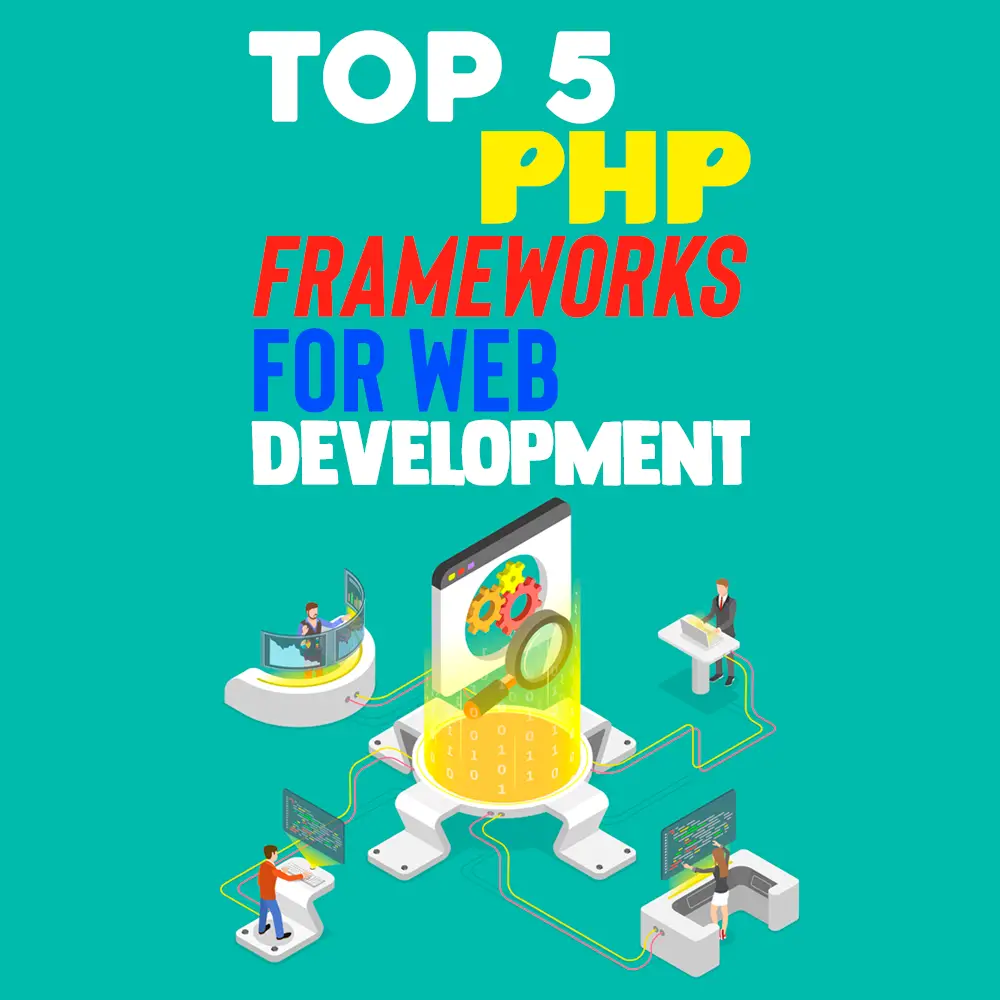
One of the advantages of PHP is that it’s easy to learn and use. Furthermore, PHP is more compatible with HTML than any other backend technology.
As for PHP frameworks, they are pre-written pieces of PHP code that help you build your websites more easily. PHP frameworks use libraries and commonly used functions to make website development faster, allowing you to use less code and more functionalities.
If you’re new to PHP frameworks, you might wonder where to get started and which frameworks are the best. In this post, I’m sharing with you a list of the top five PHP frameworks for web development to help you choose the best framework for you.
Top 5 PHP Frameworks for Web Development
So, which is the best PHP framework? The answer depends on your needs, but generally speaking, the most uncomplicated framework, which provides the most features, and is the most popular, can be considered the best. Let’s take a look at the top 5 PHP frameworks, so you can pick the one most suitable for your needs.

Laravel
Laravel is the most famous and widely used PHP framework. It was first released on June 9, 2011. There are a ton of contributions (commits on GitHub) and more than 1.1 million websites around the world using this framework.
GitHub stars: 70.2K
Famous users: BBC, Pfizer, Liberty Mutual Insurance.
No of websites: 1.1M
Recommended Learning Resources: Udemy, YouTube, Laravel Learning book
The pros of Laravel include the following:
- Easy to learn and use for beginners
- Simple and easy-to-understand syntax
- Highly secure
- Many built-in features like authentication and a security system
As for its cons, they can be summed up like this:
- Complex project structure
- No new versions
- Slower than other frameworks such as Django
- Less powerful composer

Code Igniter
Code Igniter was launched on February 28, 2006. It’s a free and open-source web development framework. Due to its built-in modules, it’s also one of the best PHP frameworks because of its speed and easy configuration.
GitHub stars: 18.2K
Famous users: Accenture, Ola, Zendesk Inc
No of websites: 541K
The pros of CodeIgniter include the following:
- Easy to use due to its less complex structure
- 3-4% faster than most of the other PHP frameworks
- No forced design pattern
As for its cons, they can be summed up like this:
- Less secure than other frameworks because it’s an old framework
- Fewer libraries for creating new functionalities
- It’s an old framework, and no further releases have been announced

CakePHP
CakePHP was released in April 2005. It’s also a free and open-source web development framework providing very high-security features such as SQLi (SQL Injection) protection, and XSS (Cross-Site Scripting) protection.
GitHub stars: 8.5K
Famous users: Glen Raven Inc, Conservation International, InSync Solutions
No of websites: 188K
The pros of CakePHP include the following:
- Easy to develop apps
- Many useful built-in features, for instance, a security system, and powerful routing for SEO
- Very secure
As for its cons, they can be summed up like this:
- Small community support
- Not comprehensive and beginner-friendly documentation

Symfony
Symfony is a PHP-based web development framework that is commonly known for its reusable components and libraries which make it easy to code. The workflow in Symfony is very fast because it’s not necessary to write the code for the same thing again and again.
GitHub stars: 27K
Famous users: Spotify, Dailymotion, Trivago
No of websites: 37K
The pros of Symfony include the following:
- Fast
- Very flexible
- Reusable code
As for its cons, they can be summed up like this:
- Testing requires more time
- OOP (Object Oriented Programming) makes it hard to learn for beginners

Yii2
Yii2 is a PHP-based framework that follows the DRY (Do not repeat yourself) principle. Yii2 was released as a successor to the framework Yii. Furthermore, it comes with a class code generator called Gii.
GitHub stars: 13.9K
Famous users: Discovery, General, Fujitsu
No of websites: 170K
The pros of Yii2 include the following:
- Amazingly fast
- Supports front-end development as well
- Very lightweight (uses fewer resources like RAM and CPU)
As for its cons, they can be summed up like this:
- Hard to learn
- Many features such as querying and broadcasting are not supported
Build Smarter with a Top PHP Framework
The scripting language PHP is free, open-source, powerful, and well-liked. It contains many frameworks. So, what’s better than simple? But of course, even simpler!
Here’s where PHP frameworks enter the picture. As pre-written pieces of PHP code, they help you build your websites more easily, avoiding the extra work. PHP frameworks make website development faster, allowing you to use less code and add more functionalities. This way, your productivity and effectiveness increase.
In this post, I’ve offered you a list of the top 5 PHP frameworks, with their pros and cons, so you can choose the right one for your project. The rule of thumb is, to build smarter, not harder!
